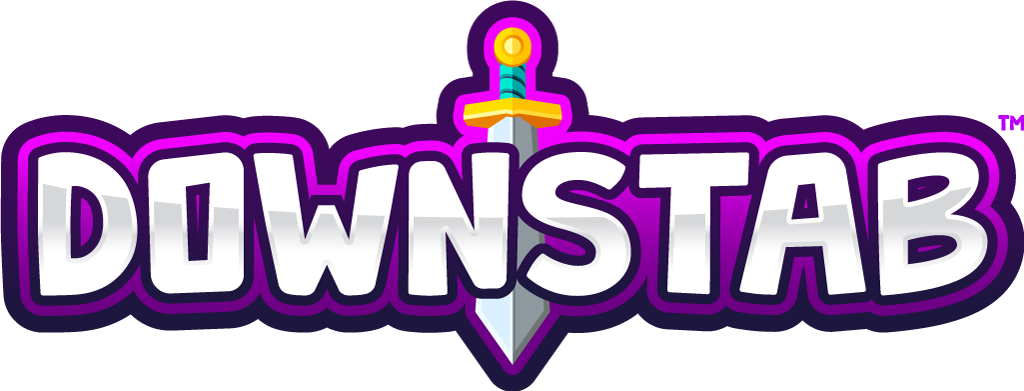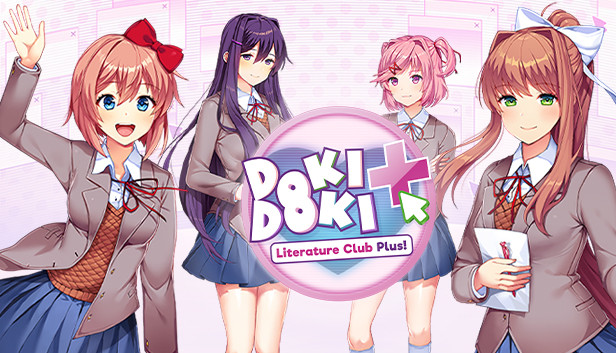The original PC visual novel Doki Doki Literature Club took over the internet back in late 2017. Offering up a cute aesthetic wrapped around themes of depression, self-harm, and horror, it was an odd blend of genres that would have been unique on it’s own. However, an entire meta-game that has you doing things outside of loading the game itself is where the title really stood out. PC players would be deleting files, reloading games, looking for clues in the game’s system files, and so much more. Theories surrounded the game’s main antagonist and their incentives, but one thing was certain: Doki Doki was not like anything gamer’s enjoyed before.
Jump ahead to 2021 and the game sees itself on all current game consoles, including the Nintendo Switch. Obviously being on a console game and not a PC game, players cannot close the game and go to the game’s files and start manipulating them to see the in-game results. Instead, Doki Doki Literature Club Plus incorporates a computer-like desktop for you to navigate. From here, you can access the game’s “System Files” and emulate what one would do on the actual computer desktop. It’s not ideal, but it works for what it is.
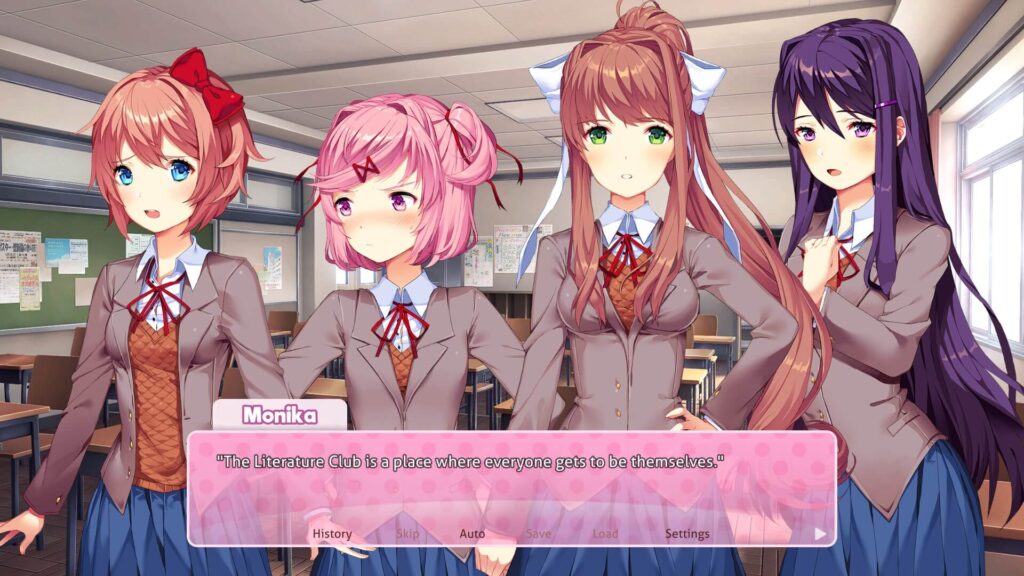
I do not play PC games all that much. Occasionally I’ll jump on and play (although as of this week we now have a beefy gaming rig, so we’ll reevaluate that claim shortly). When DDLC released in 2017 I was caught up in the hype behind what everyone was saying about it, but didn’t play the game. I watched the Game Theory videos all about it and really enjoyed learning what the game had to offer. For someone that hadn’t played the game, I knew a good amount. You can imagine my excitement when I was given a copy of the game for Christmas this past year.
I spent about 2 days playing through the game on the Switch. I witnessed the twists, turns, murders, and psychological horrors first hand and for the first time. It was honestly pretty great! I literally said “Oh my god” out loud a couple times, and was pleasantly surprised with the story and meta-game. Deleting files and seeing the game become “corrupt” was super cool. For how cool the game and effects were though, I couldn’t help but feel I was getting a subpar experience.
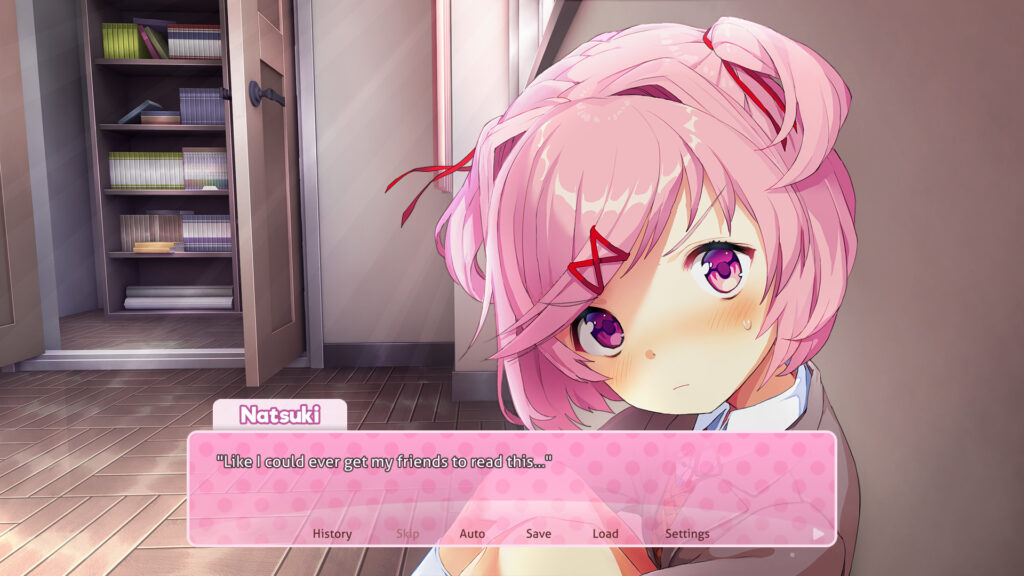
DDLC on consoles is inferior. The game handles and runs well, but the non-game elements are lacking. It’s not quite the same using a digital computer desktop interface to play around with game files. I feel a lot more limited without my massive hard drive to play around. It’s not as rewarding to be told secretive information via in-game emails and messages rather than finding them yourself in the actual games files (which is done on the PC version of this game). Granted, I likely wouldn’t even do these things because that’s not how I enjoy my video games, but it’s worth pointing out.
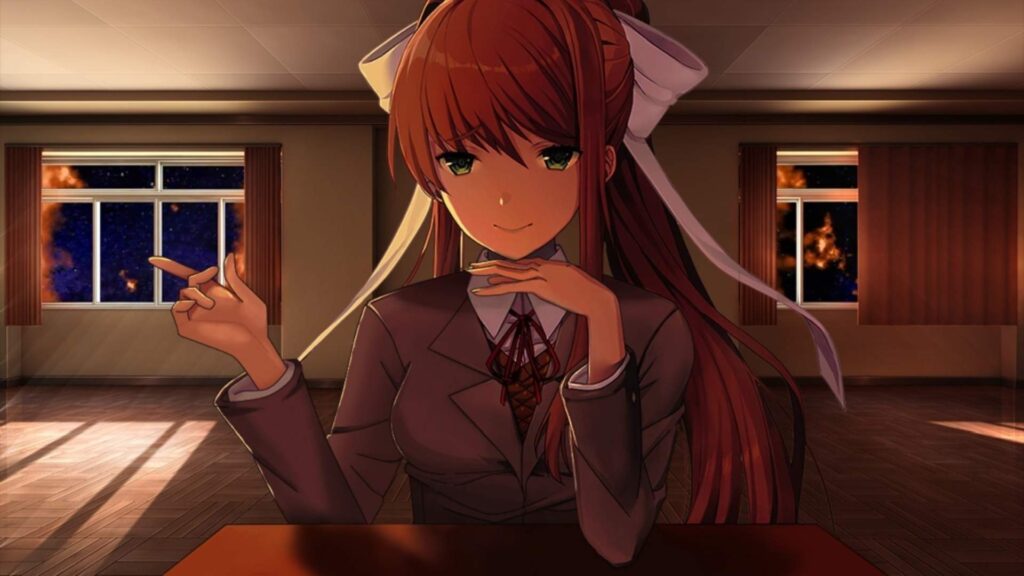
Perhaps the biggest offender to this dichotomy between platforms comes from what you learn about the game when not playing it. As stated above, I’m not really into opening files and changing brightness or playing audio files backwards, but that’s what you can do to find more information about the game’s characters. It’s honestly how you find all the impressive and meta stuff DDLC has to offer. I found out about all of this watching online videos and would have never guessed it was even a thing unless I did. There’s no real evidence of these things in the game itself: it’s all found out and presented outside of the visual novel. Without these things in the Switch or other console versions, the game loses what makes it truly special.
Doki Doki Literature Club Plus is a good game. It’s just a better game on PC. If you have the opportunity, play it when you can. Just try to play it on PC.
Laters,
Jsick
